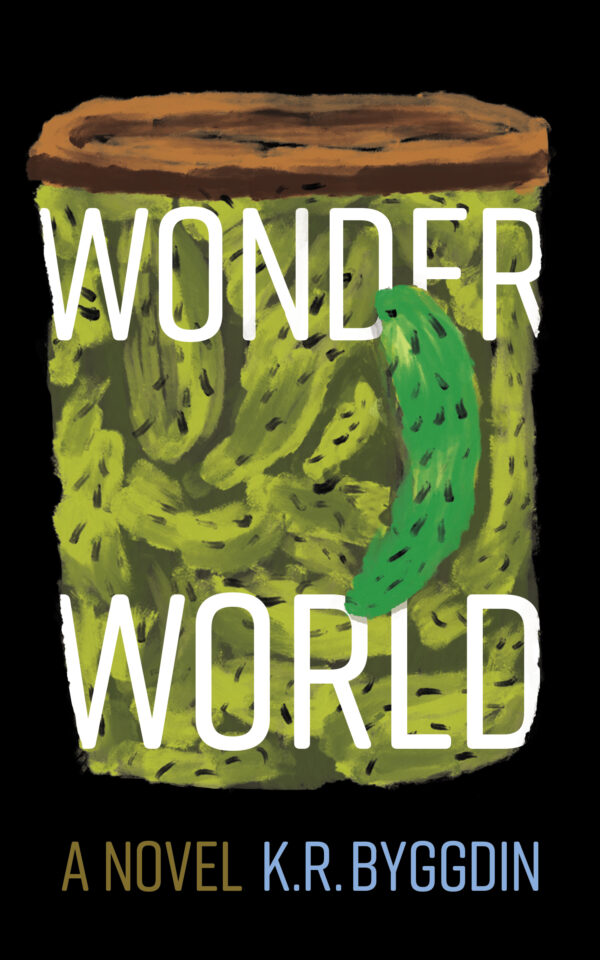Wonder World
By K.R. Byggdin
Enfield & Wizenty
183 pages, $21.95
Isaac Funk is a character many of us know. This is not to say he’s generic—he’s anything but—but he feels familiar, at least within certain communities or subcultures. We find Funk, a wildly dressed pansexual twenty-something music school dropout, struggling in Halifax, Nova Scotia, when the novel begins. Upon receiving news that his beloved grandfather has passed, Funk heads back to the small Mennonite town in Manitoba that he was born and raised in, Newfield, a town he left after being shunned by his church, community, and family of origin (though not the aforementioned grandfather, Opa Willie).
Newfield is a central character in Wonder World, as much so as any of the human ones. Byggdin writes the environment with great richness and description, making the whole book feel as if the reader is visiting a friend’s hometown with them. It’s familiar territory for the debut author, who grew up in the Prairies and is currently based in Halifax. Their sense of place is unwavering, and this trip is one readers are glad to accompany Funk on, much as there’s reason to be concerned about his well-being there.
The novel brings up questions about what makes a home, community, and family—concepts that are not new, but are approached in a new way. Funk navigates his emotionally stunted father, pushy relatives, and high-school peers who never left Newfield. We dip into backstories of characters and places as they come up in the story, and no single character or bit of nostalgia seems gratuitous; it all feels necessary to the story. If there’s critique to be had, it’s that there could have been more of some of the secondary characters and more on the internal lives of some of the more prominent ones. That said, the story is told from Funk’s perspective, so that might have been difficult to pull off.
Overall, Wonder World is a look at a part of the country not often written about (Casey Plett’s work and Miriam Toews’ come to mind—these places do exist in literature, just not widely) and a wonderful contribution to the queer literary landscape. Sometimes it’s exciting to read writers writing what they know best, and this is likely the case for Byggdin, but it’s as enthralling to see what they dream up next, with that foundational stuff out of the way. I’ll be on the lookout for what Byggdin writes next.
—Tara-Michelle Ziniuk














